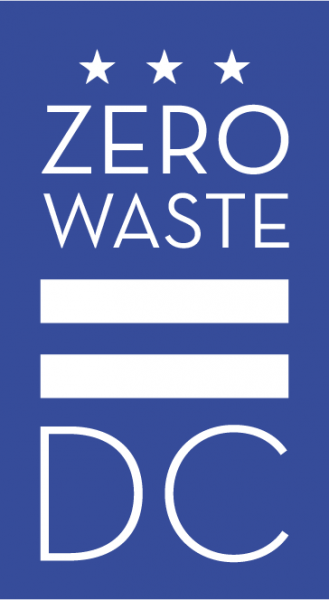Each year, over 85,000 tons of food go to waste in the District of Columbia’s commercial sector. Nationally, one-third of all food that’s produced is thrown away. Zero Waste DC encourages local businesses to reduce food waste, donate excess food, and redirect food scraps to their highest and best use.
Why Reducing Food Waste Matters
- It’s expensive: Food waste costs US businesses nearly $59 billion annually.
- It’s unnecessary: One-third of all food produced globally never gets eaten.
- It’s a missed opportunity: Organic waste is a valuable resource that could fuel a more sustainable, circular economy.
- It’s the law: Under DC Code § 8-1031.03a, starting January 1, 2023, large food waste generators are required to source separate back-of-house food scraps.
Legal Requirements for District Businesses
The District of Columbia passed legislation requiring the District’s largest commercial generators of food waste to begin implementing diversion strategies to keep their food waste out of the trash (DC Code § 8-1031.03a). Selected food waste generators will be required to establish food waste diversion programs and divert back-of-the-house commercial food waste.
Back-of-house commercial food waste included food scraps separated by employees of a commercial establishment. It does not include food waste discarded directly by customers, but it does include food waste discarded on behalf of customers by employees.
As of January 1, 2023:
- Colleges and universities with at least 2,000 residential students
- Retail food stores (i.e., grocery stores) with an area of at least 10,000 square feet.
As of January 1, 2024:
- Colleges and universities with at least 500 residential students.
- Retail food stores that are part of a chain that: (a) Operates stores under common ownership or control for which waste is collected by the same private collector; (b) Consists of three or more stores; and (c) Has a combined area of at least 10,000 square feet.
- Arenas or stadiums with a seating capacity of at least 15,000 persons.
- Hospitals and nursing homes with at least 300 beds.
After January 1, 2024:
- The Mayor may require other entities to divert food waste based on available organic waste processing capacity in the region.
Commercial Food Waste Diversion Guide
 The DC Department of Public Works (DPW) has recently updated its Commercial Food Waste Diversion Guide (Second Edition). It is available in seven languages for food establishments across the District of Columbia. Click a language below to open a PDF version of the guidebook in a new window.
The DC Department of Public Works (DPW) has recently updated its Commercial Food Waste Diversion Guide (Second Edition). It is available in seven languages for food establishments across the District of Columbia. Click a language below to open a PDF version of the guidebook in a new window.
- English
- Spanish (Español)
- Korean (한국인)
- Chinese (中文)
- French (Français)
- Vietnamese (Tiếng Việt)
- Amharic (አማርኛ)
FOOD WASTE READY TRAINING
DC DPW is developing a “Food Waste Ready” training program based on the Commercial Food Waste Diversion Guide. “Food Waste Ready” is a two-phase training and certification process designed for restaurants and other food waste generators, emphasizing the importance and process of diverting food waste. After completing an online training course, businesses can achieve “Food Waste Ready” certification. Contact [email protected] for more information.
Currently, the "Food Waste Ready" training video and study quiz are available to help DC food establishments to preview and prepare for the certification process later, when it is finalized. However, there is no waiting period needed for food establishments to take the initiative and begin planning for food waste diversion in their kitchens. Particularly those that are currently required by law to divert food waste.
Food Waste Ready Training Video
Food Waste Ready Training Quiz
For DC food establishments that wish to study for the quiz, please use this link.

